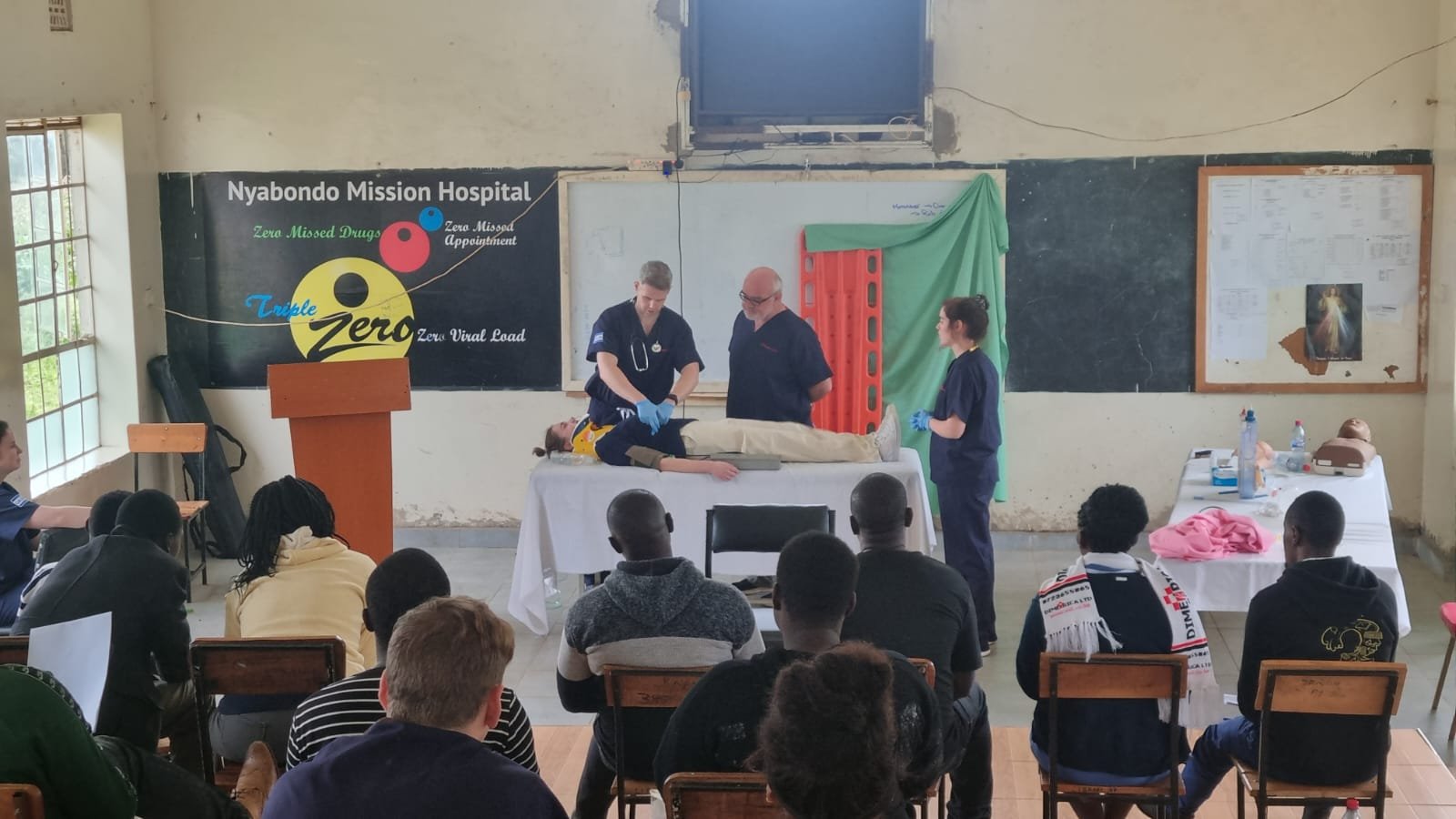
GECS Research
GECS sought to examine the effectiveness of our training by undertaking quantitative research. Our results were published in the African Journal of Emergency Medicine (read here).
Sepsis and trauma are two of the fastest-growing causes of morbidity and mortality in populations with developing healthcare systems. Recognising the deficit in Emergency Care training in Africa, IAEM member Dr Jean O’Sullivan, Consultant in Emergency Medicine at the Adelaide & Meath Hospital, Incorporating the National Children’s Hospital (AMNCH) in Tallaght established the Global Emergency Care Skills charity.
The training is undertaken through the provision of a skills and simulation-based course in trauma care, resuscitation skills and major incident management. The teaching faculty is composed of emergency medicine physicians from Ireland.

We sought to establish the effectiveness of the training courses in a rigorous quantitative manner. We measured the participant’s core knowledge and improvement therein by comparing the results of pre-course and post-course multiple choice questionnaire exams.
Simulation training with evidence-based curriculum that is tailored to local needs and resources.
Success in improving participants’ skills set and knowledge.
Successful results are replicated in different countries and with different baseline skill levels.
Training participants to teach skills to colleagues increases interest and enjoyment of participation in course.
Structure
The course curriculum is based on best international evidence but is however tailored to the local epidemiology of injury and illness and also to available local healthcare resources. The course covers the emergency care of both adult and paediatric patients.
Continuous online e-learning combined with practical skills.
Evidence-based emergency medicine learning tailored to local resources and epidemiology.
Skills and simulation learning in a team and when working alone.
Results
Our results showed that after completing a GECS course, participants scored significantly higher in a multiple-choice question examination evaluating their knowledge of trauma care, resuscitation skills, major incident management and the management of acute medical emergencies.
These results show that by participating on a Global Emergency Care Skills course, healthcare staff had a significant improvement in their knowledge of emergency care and trauma skills.
The results demonstrate that a combination of skill stations, group workshops and scenario learning is a successful method of teaching emergency medicine.
